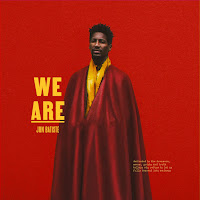One of my favorite prints in my office is by a Palestinian artist, Suleiman Mansour. And the Convoy Keeps Going was included in a now-sold-out set of postcards I purchased at the Walled Off Hotel in Bethlehem. Often presumed to be a Banksy work, which speaks to the erasure of Palestinians by Western collectors, this small replica of a larger mural conveys much of the struggle of those who live in the midst of on-going apartheid in the Holy Land.
Banksy has always been one of my favorite artists. Mostly because of his mystery and subversion of...everything. Yet, when we made our surprise stop to the mysterious graffiti activist's museum devoted to the Palestinian struggle for liberation, I shrugged off purchasing his pieces because I was drawn to Mansour's. The paraders carry a gun loaded with a palm branch, paint brushes instead of swords, and a key wielded for opening whatever locked door awaits the end of their route of resistance. As they make their convoy in the midst of tourists on the sandy beach, much is conveyed about one of the oldest of human struggles for dignity, validity, and freedom.
And I could not help but think of Palm Sunday and the parading of another Palestinian in the midst of crowds carrying branches of resistance, longing for liberation in the midst of another empire of ignorance and oppression. Much like this print with a confused origin, this narrative is often erased of the pervasive power in the protest. Despite each of the four Gospels' inclusion of the events and contextualizing prophetic and subversive first-century imagery, the story has been white-washed.
Palm Sunday is a profound quest for justice and jubilee not by way of empire, but through a freedom ride on the back of an inexperienced, rookie ass in solidarity with those most marginalized, exploited, dismissed, and ignored. Palm Sunday is a convoy of courage to elevate the voices and narratives of those long silenced by the dominant culture. Palm Sunday is when the the oppressed are empowered to cry out for salvation, "Hosanna!", and find it not in a war horse but a Palestinian Messiah on the back of a pack animal- carrying the burdens of long-suffering people. And the weapons of this movement look less like those of a violent army and more like imaginative artists and activists who carry branches of life, brushes of color, and keys that unlock new openings through systemic injustice that have excluded and shut out too many for far too long.
What does this mean for us, in our time and place?
In the midst of a lingering pandemic? In the wake of back-to-back mass shootings, which continue to expose our unmitigated idolatry of gun violence mixed with racism and the objectification of Asian American, Asian, and Pacific Island siblings? In the on-going struggle of Black and Brown neighbors? In the erasure of Native persons throughout this land that is not our land? When, despite the mounting deaths, the church continues to prioritize the preference of those in the pews over those who protest in the streets, naive to the truth that this is why they take to the streets versus speak from the pews in the first place?
I know I have found so much wisdom these days in the poets and painters, dreamers and placard carriers, photographers and film makers of our generation. They, like those in Jerusalem that day, have been led the way and called out, devoting their efforts to the "dreamers, seers, griots and truth tellers who refuse to let us fully descend into the madness" (Jon Batiste, We Are album cover art dedication).
I keep Mansour's print in my office as a regular reminder and charge to self to devote my vocation to the same. I keep it there to stir confessional questions: In my work and witness, where am I in the painting? Am I among the convoy or seated with toes buried in the sand as the struggle passes me by? Do I parade alongside those whose hosanna cries echo two millennia later or remain unconcerned about the struggle that has cast shade on my privilege?
The answers are not as clean as I would like; my life is endlessly reformed and reforming. Jesus, hosanna! Save me. Save us. Save all. Ride on through our places of suffering and silence and carry our cries for something better and far more beautiful than what we presently know. And may your grace cover a multitude of our individual and corporate sins.


